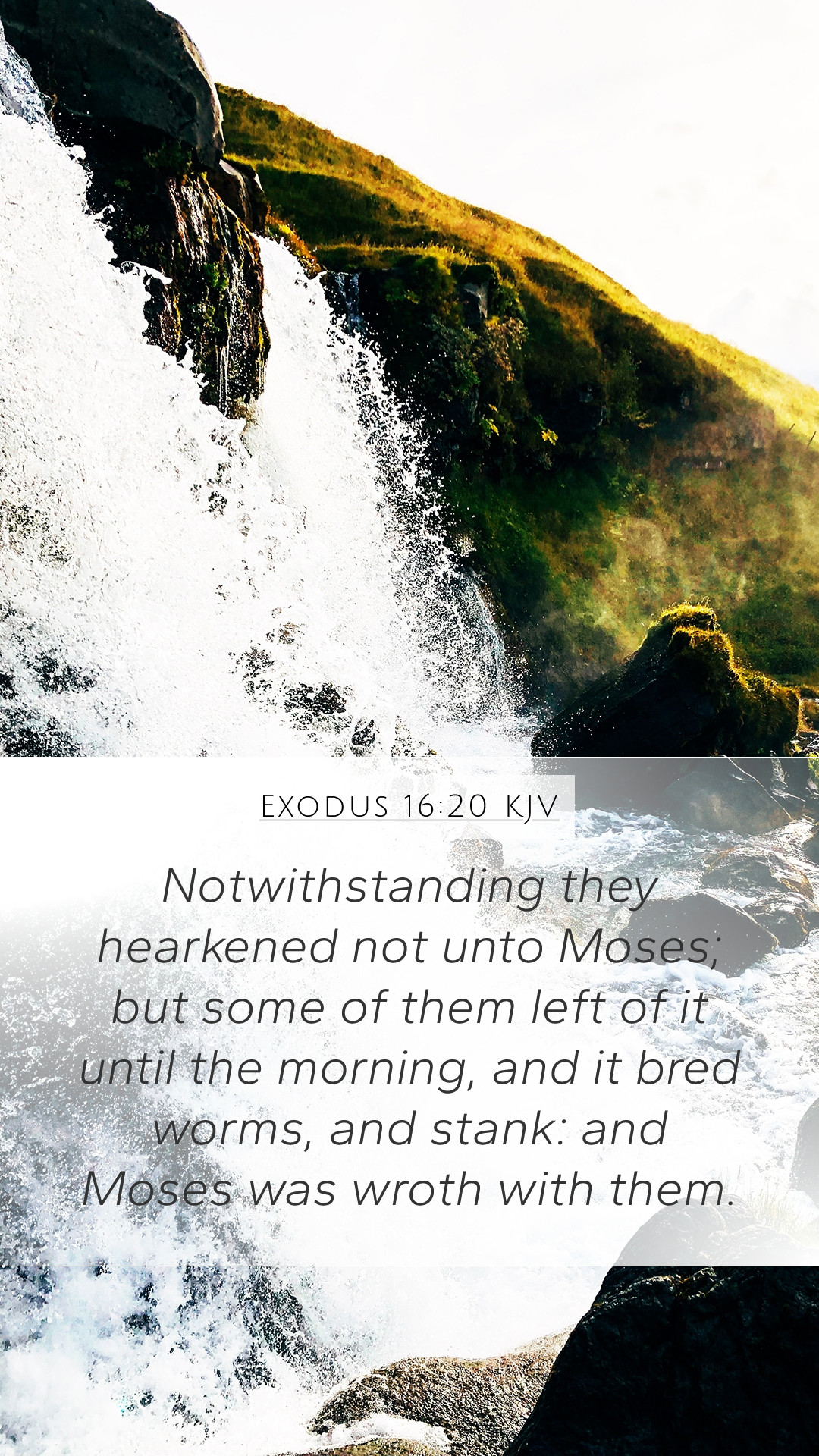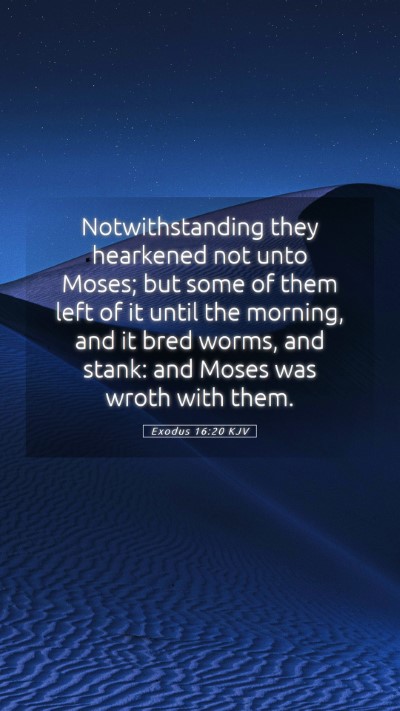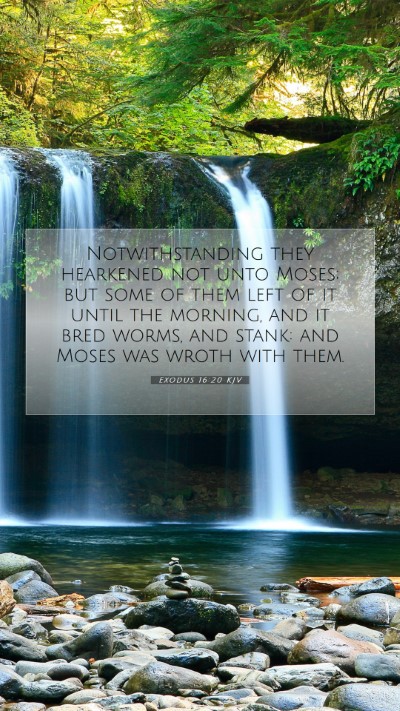Understanding Exodus 16:20
Verse: Exodus 16:20
"Notwithstanding they hearkened not unto Moses; but some of them left of it until the morning, and it bred worms, and stank: and Moses was wroth with them."
Bible Verse Commentary
Exodus 16:20 presents a pivotal moment in the narrative of the Israelites' journey through the wilderness, highlighting their struggle with obedience and trust in God. This verse specifically recounts the disobedience of some individuals who did not follow God's instructions regarding the manna provided for their sustenance.
Historical and Contextual Insights
- The setting of this event occurs shortly after the Israelites' deliverance from Egypt, as they trek through harsh wilderness conditions.
- The manna is miraculous food provided by God, symbolizing His care and provision for His people.
- This command regarding the gathering of manna was integral to teach the Israelites dependence on God and obedience to His word.
Interpretation of Key Elements
This passage illustrates several significant themes related to Bible verse meanings:
- Disobedience: The Israelites' refusal to follow Moses' instructions demonstrates a lack of faith and trust in God's provision.
- Consequences: The result of their disobedience was that the manna spoiled, which serves as a practical lesson about divine mandates.
- Moses' Anger: Moses' frustration highlights the burden of leadership and the consequences of communal disobedience.
Lessons for Today
Examining Exodus 16:20 helps us glean essential Bible study insights applicable to modern Christians:
- Trusting in God's provision is crucial; we are encouraged to rely on Him fully without doubting His instructions.
- The deterioration of the manna serves as a metaphor for spiritual nourishment; what we do not use or appreciate may degrade in our lives.
- Moses' role demonstrates the challenge of leading a group that may not follow directions or acknowledge divine guidance.
Bible Verse Interpretations
Considering various Bible verse interpretations, we find distinct observations:
- Matthew Henry notes that the worms in the manna symbolize how neglecting God's commands leads to decay in spiritual life.
- Albert Barnes emphasizes that this narrative teaches the necessity of faithfulness in small matters, portraying a broader call to obedience.
- Adam Clarke comments on the importance of recognizing the limits of God's provisions; disobedience results in loss.
Scripture Analysis
This verse prompts readers into deeper scriptural analysis. Here are some related themes and references that illuminate its meaning:
- Trust and Provision: Philippians 4:19 - God supplies all our needs.
- Obedience and Consequences: Deuteronomy 28:15 - The blessings and curses of obedience versus disobedience.
- God's Faithfulness: Matthew 6:11 - The significance of daily bread and reliance on God's provision.
Application of the Verse
Reflecting on the significance of Exodus 16:20, believers are prompted to ask:
- What does this verse teach about my own reliance on God?
- How do I respond when faced with divine instructions?
- In what ways can I be more obedient in my spiritual life?
Conclusion
In summary, Exodus 16:20 stands as a powerful reminder of the necessity of obedience to God's directives. It calls individuals to reflect on their faith and the importance of adhering to divine instruction, as the biblical narrative continues to resonate with contemporary Christian living.
Additional Keywords:
- Bible verse meanings
- Bible verse commentary
- Bible study insights
- Meaning of Bible verses
- Understanding Scripture


